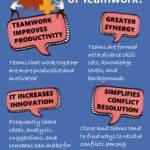
What is Emotional Leadership
Emotional leadership is a leadership style that places emphasis on understanding and managing emotions in the workplace. This style of leadership recognizes the impact that emotions have on individual and team performance, and it seeks to leverage these emotions in a positive way to achieve organizational goals.
Emotional leadership is about being able to connect with people on a deeper level, to create a sense of purpose and meaning, and to inspire and motivate others to achieve their full potential.
One of the primary benefits of emotional leadership is that it fosters an environment of trust and psychological safety. When leaders are able to connect with their employees on an emotional level, they are able to build relationships of trust and create a safe space for open and honest communication.
This, in turn, fosters a sense of loyalty and commitment among employees, who feel valued and supported in their work.
Another benefit of emotional leadership is that it can enhance the creativity and innovation of a team. When employees feel safe and supported, they are more likely to take risks and think outside of the box.
They are more likely to share their ideas and perspectives, which can lead to more innovative solutions to problems.
Effective emotional leaders are also skilled at managing conflict and difficult situations. They are able to remain calm and level-headed in the face of adversity, and they are able to guide their teams through challenging times with grace and compassion.
This helps to maintain morale and keep the team focused on achieving their goals, even in the midst of difficult circumstances.
However, emotional leadership can also have its downsides. If leaders are not careful, they may become too emotionally invested in their team members and may struggle to make tough decisions when necessary. They may also struggle to maintain objectivity and may be perceived as playing favorites.
This is a balancing act that needs to be managed.
One of the keys to effective emotional leadership is self-awareness. Leaders who are self-aware are able to recognize their own emotions and how they may impact others.
They are able to regulate their emotions and remain calm under pressure, which can inspire confidence and trust among their team members.
Another key to effective emotional leadership is empathy. Leaders who are able to empathize with their team members are better able to understand their needs and concerns, and they are better equipped to provide support and guidance when needed.
(Reference: https://www.linkedin.com/pulse/what-emotional-leadership-jonathan-saltis)


